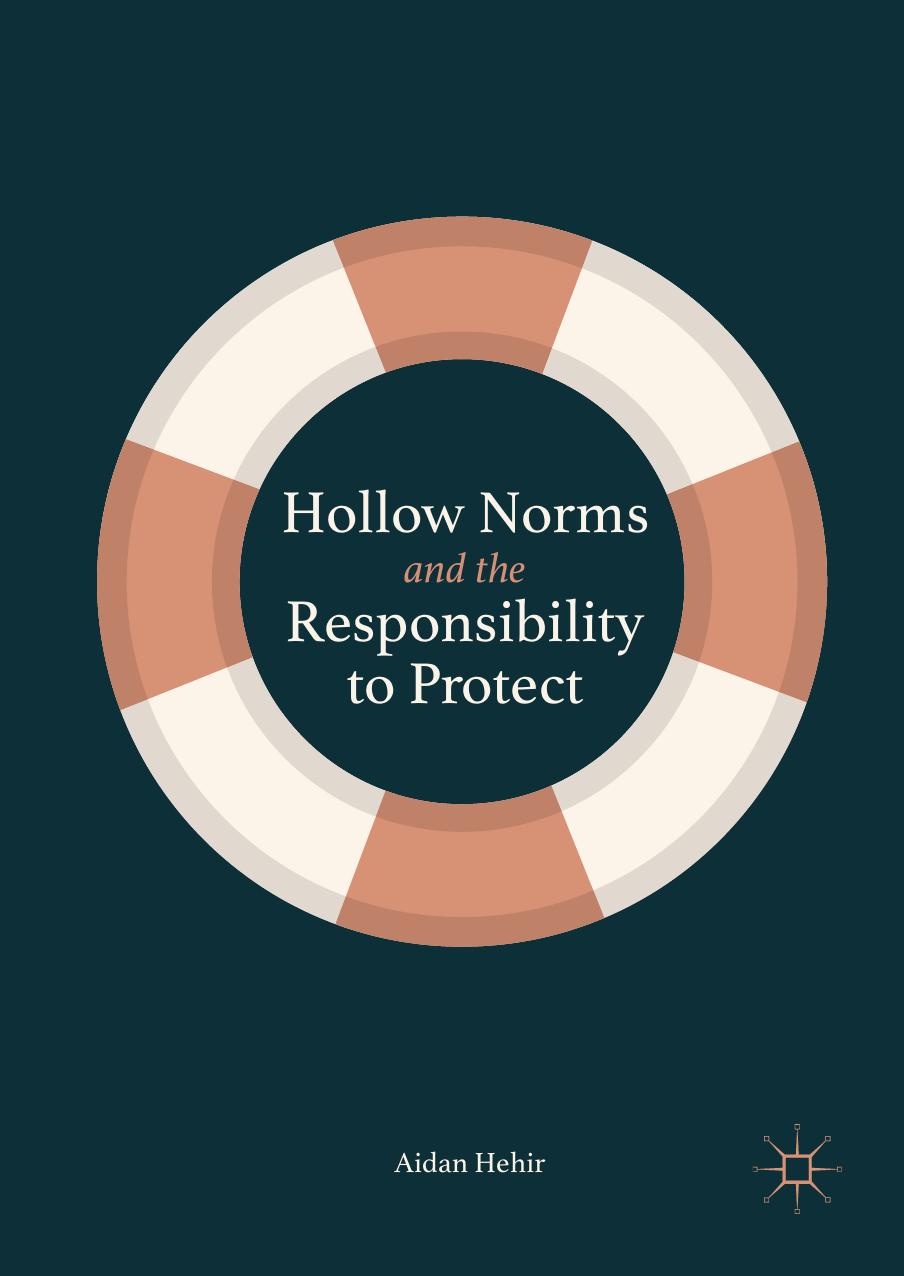Hollow Norms and the Responsibility to Protect by Aidan Hehir

Author:Aidan Hehir
Language: eng
Format: epub, pdf
Publisher: Springer International Publishing, Cham
Year
Number
2006
3
2007
0
2008
0
2009
1
2010
0
2011
6
2012
2
2013
7
2014
10
2015
14
2016
12
2017
12
In addition to the quantitative argument celebrating the number of Security Council Resolutions passed, at certain times R2P enthusiasts have heralded particular invocations of R2P in Security Council Resolutions as especially salient, and ostensibly evidence of a new, revolutionary disposition. Indicatively, following Resolution 1973 on Libya in February 2011, Paul Williams and Alex Bellamy argued that the Security Council’s response ‘broke new ground’ and was evidence of a ‘new politics of protection’ (2011, pp. 825–826). The resolution on Libya, they argued, should be seen in the context of broader normative shift—particularly, the prevalence of more robust UN Peacekeeping Operations—and demonstrated that ‘international society is now explicitly focused on civilian protection’ (ibid., p. 826). The facts presented in Chapter 2 clearly suggest that such claims relating to a positive shift in global human rights protection—by no means unique to Williams and Bellamy ’s article (see Hehir 2013)—have proved to be untrue.
Yet, it is worth noting that there was a basis for these claims; rather than being fantasies, these claims derived from a particular interpretation of genuine events, such as Resolution 1973 and the subsequent intervention in Libya. But this interpretation—and the broader discourse surrounding the ostensible significance of the Security Council’s increased invocation of R2P—appears to have been characterised by two features; a willingness—if not a determination—to take the rhetoric of the Security Council at face value, and a fixation with terminology—including specific references to R2P, but also to co-called ‘implicit signifiers’ of the concept (Dunne and Gelber 2014)—at the expense of analytical rigor; this is a theme explored in greater depth in Chapter 7.
In the specific case of Resolution 1973, the Security Council certainly acted swiftly, invoked R2P in their resolution, and the key leaders pushing for the military action—US President Obama , UK Prime Minister David Cameron and French President Nicholas Sarkozy —all spoke about their determination to avert a mass atrocity crime. Thus, the intervention in Libya certainly looked like it was motivated by the ethos R2P had sought to cultivate since its inception. Yet, as I argued elsewhere, Libya did not actually signify anything more than the continuation of a pre-existing trend R2P had actually been established to redress, namely inconsistency (Hehir 2013). While R2P was certainly mentioned in the Resolution, there was no evidence that the concept actually impelled any of the key leaders to act; indeed, the term was conspicuous by its absence from the key speeches given by Obama , Cameron and Sarkozy , and evidence suggests it simply did not figure prominently in the decision-making prior to the intervention (Ralph and Gifkins 2015, p. 638). In fact, Justin Morris’ analysis of the decision-making preceding Resolution 1973 highlights that R2P was hardly mentioned in the key meetings; even with respect to the UK —historically publicly supportive of the concept—he argues, ‘the concept played little part in determining policy’ (Morris 2013, p. 1273). The UK Defence Committee’s own report on events leading up to the intervention in Libya does not attach any importance to R2P
Download
Hollow Norms and the Responsibility to Protect by Aidan Hehir.pdf
This site does not store any files on its server. We only index and link to content provided by other sites. Please contact the content providers to delete copyright contents if any and email us, we'll remove relevant links or contents immediately.
The Secret History by Donna Tartt(19083)
The Social Justice Warrior Handbook by Lisa De Pasquale(12190)
Thirteen Reasons Why by Jay Asher(8907)
This Is How You Lose Her by Junot Diaz(6885)
Weapons of Math Destruction by Cathy O'Neil(6279)
Zero to One by Peter Thiel(5798)
Beartown by Fredrik Backman(5751)
The Myth of the Strong Leader by Archie Brown(5507)
The Fire Next Time by James Baldwin(5441)
How Democracies Die by Steven Levitsky & Daniel Ziblatt(5218)
Promise Me, Dad by Joe Biden(5153)
Stone's Rules by Roger Stone(5087)
A Higher Loyalty: Truth, Lies, and Leadership by James Comey(4959)
100 Deadly Skills by Clint Emerson(4924)
Rise and Kill First by Ronen Bergman(4788)
Secrecy World by Jake Bernstein(4751)
The David Icke Guide to the Global Conspiracy (and how to end it) by David Icke(4717)
The Farm by Tom Rob Smith(4506)
The Doomsday Machine by Daniel Ellsberg(4489)
